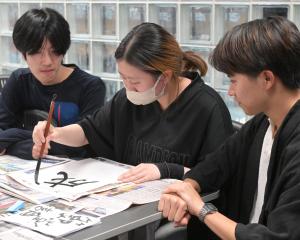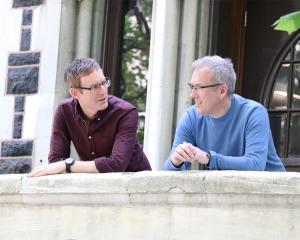
The polytechnic’s latest economic impact report shows the Dunedin campus added a total value of more than $967 million to the Dunedin economy from 2017 to 2021.
It also shows the Dunedin campus accounted for $212 million to Dunedin’s gross domestic product of $6.82 billion in 2021, compared to $194 million the previous year, chief executive Dr Megan Gibbons said.
‘‘These 2021 results show that Otago Polytechnic is one of the city’s largest employers and continues to make significant contributions to Dunedin’s economy.
‘‘This report reflects our record of innovation, resilience and adaptation. Our ability to collaborate with industry and community is also a big factor in our institutional health.’’
The report also assessed the flow-on (or indirect) total expenditure of all Otago Polytechnic’s activities - including its Cromwell campus and Auckland international campus - to be $469 million in 2021.
In Dunedin, total expenditure was $385 million - up $20 million on 2020.
Dr Gibbons said 68% ($321 million) of that flow-on expenditure across all campuses was driven by student spending.
The remainder was derived from day-to-day Otago Polytechnic expenditure and the impact of staff spending their wages and salaries within their local economies.
In 2021, it employed 562 full-time equivalent staff at its Dunedin campus, and 637 full-time equivalent staff across all its campuses.
From 2020-2021, Dunedin campus full-time equivalent (EFTS) students increased by 7% overall, and across its three campuses, Otago Polytechnic’s enrolments totalled 5664 EFTS (10,213 actual students) in 2021.
She said the polytechnic’s contribution went beyond economic, and the value of education should be regarded outside merely fiscal bounds.
‘‘Education changes people’s lives and the trajectory for them, their whanau, and communities.
‘‘There is growth in learning new things and reaching new goals, contributing to society and in helping others to achieve.
‘‘These benefits are more difficult to measure but contribute both directly and indirectly to economic, social, cultural, spiritual and environmental wellbeing.
‘‘As we continue our transition with Te Pukenga, of which we have been a subsidiary since April 2020, we continue to be involved in a highly collaborative process, working together to make improvements for the betterment of all learners,’’ she said.












